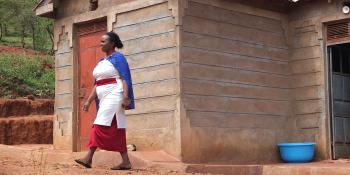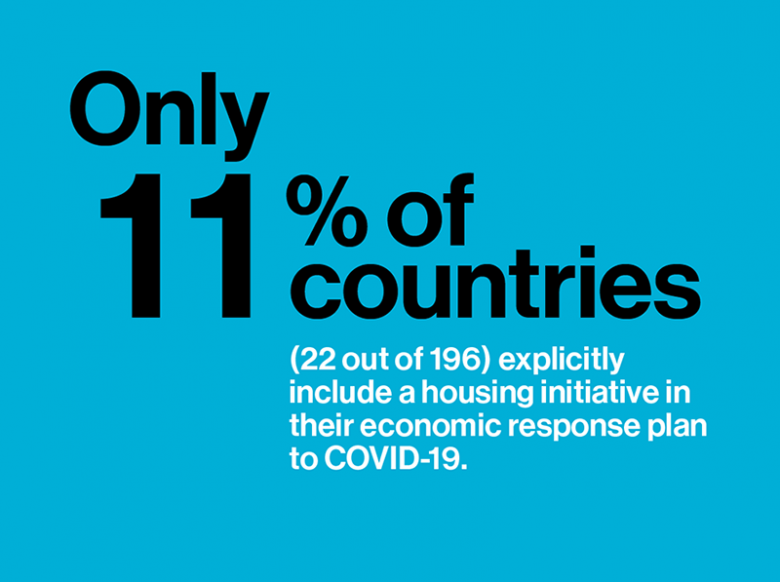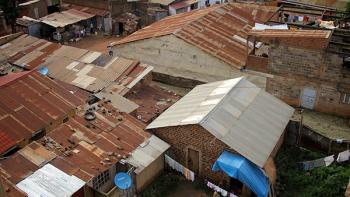
Housing is a key to COVID-19 recovery
BRATISLAVA (Oct. 5, 2020) – Emerging economies struggling to recover from the COVID-19 pandemic may be significantly underestimating how much their housing sectors contribute to gross domestic product (GDP) and, as a result, missing opportunities for economic and social revival, according to a report released by Habitat for Humanity to mark World Habitat Day.
Existing datasets in low- to middle-income countries are often incomplete or inaccurate, and efforts to measure housing’s contribution to the economy have largely focused on developed countries, according to the report commissioned by Habitat’s Terwilliger Center for Innovation in Shelter and co-authored by Arthur Acolin, assistant professor of real estate at the University of Washington, and Marja Hoek-Smit, director of the International Housing Finance Program of the University of Pennsylvania’s Wharton School Zell/Lurie Real Estate Center.

Source: International Monetary Fund
But including the often-overlooked housing services and informal housing components reveals housing to account for up to 16.1 percent of GDP on average across 11 emerging economy countries analyzed in the report. That places housing on par with sectors such as manufacturing that often draw far more attention in economic recovery plans. In the Philippines, assuming official statistics count half the informal housing market — whereby families improve homes via an incremental process — housing’s actual share of GDP is 17.3 percent, the report found.
Inclusive financial interventions in the housing sector, particularly through construction or rental assistance, can stimulate economies in these countries while also improving the wellbeing of families through healthier housing conditions, according to the report, titled Cornerstone of Recovery: How Housing Can Help Emerging Market Economies Rebound from COVID-19.
“Look beyond the blind spots in the data and you see that housing can make or break a recovery,” said Patrick Kelley, vice president of the Terwilliger Center. “Investments in healthy, secure housing have greater-than-expected benefits, creating jobs, generating incomes and, critically, helping alleviate the overcrowding that makes communities more vulnerable to threats such as COVID-19.”
The authors recommend stimulus policies that, in cooperation with the international and private sectors, focus on middle- and lower- income families while also including formal and informal markets, rental housing, and community organizations. They emphasize short-term actions to: make good land available for housing; open access to finance for developers, households and landlords; provide equitable subsidies to households; and offer incentives to lenders and builders.
The report is the subject of a live panel discussion titled “+You: Is housing the secret to economic recovery from COVID-19?” The World Habitat Day panel includes Kelley and Hoek-Smit and can be viewed at www.habitat.ngo/economicrecovery.


